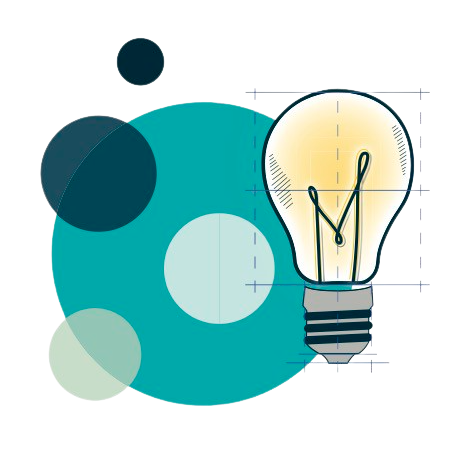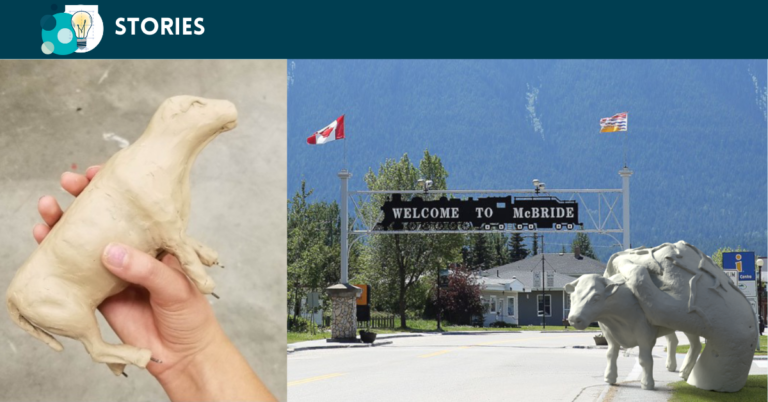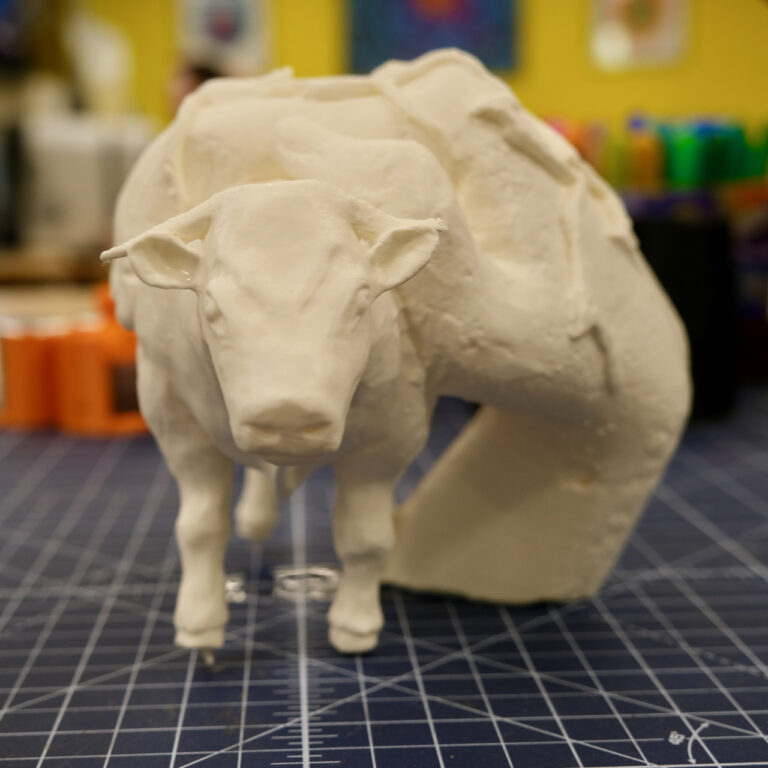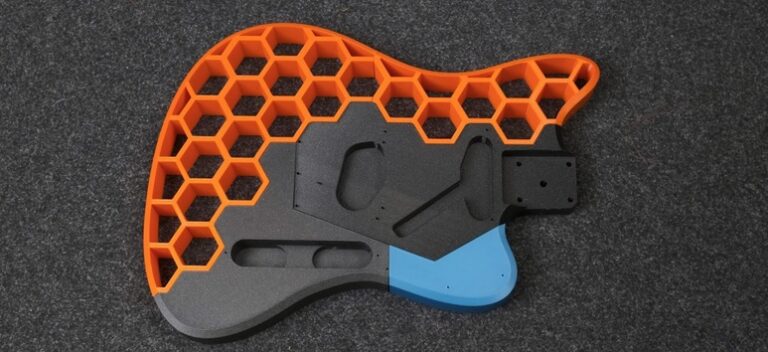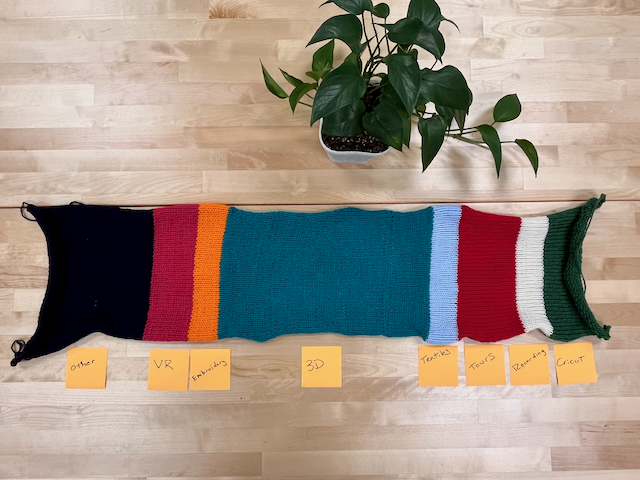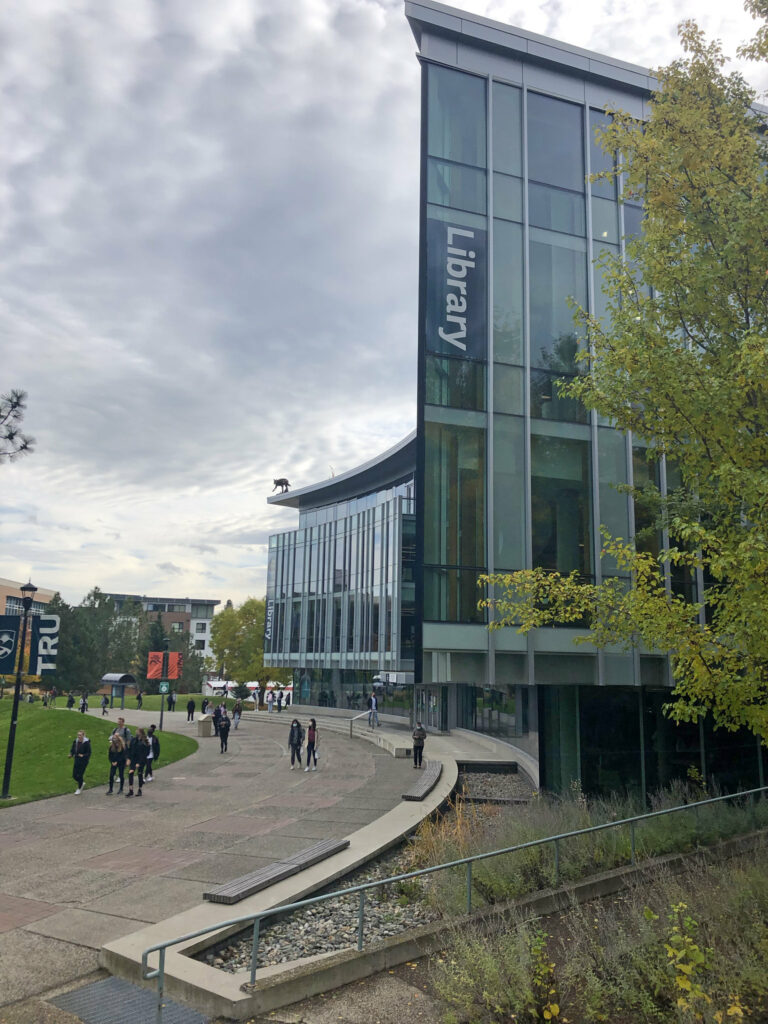Sustainability Grant Update: Tool Library Launches! Community Fabric Stash Coming Soon!
The Makerspace Sustainability Incubator Grant is almost complete! In the last year we’ve developed a tool library, are preparing to launch our donation-based Community Fabric Stash, and are mostly ready to start hosting events by campus groups.
Many thanks to our wonderful students and staff, especially our Sustainability Champion Research Assistants Melissa Kelm and Cicyetkwu Bennett-Dunstan, and staff members Olivia, Valentine, and Sarah. Olivia was especially helpful with planning for how groups will book events and purchasing many tools. Valentine used their experience in tool sheds to help us figure out what to buy, helped plan and analyze surveys, and also helped teach the rest of us what the tools were. Sarah helped develop marketing and social media materials. Special thanks also to TRU Library Technicians and catalogers Leah and Meg who helped make the tools something that users can now check out.
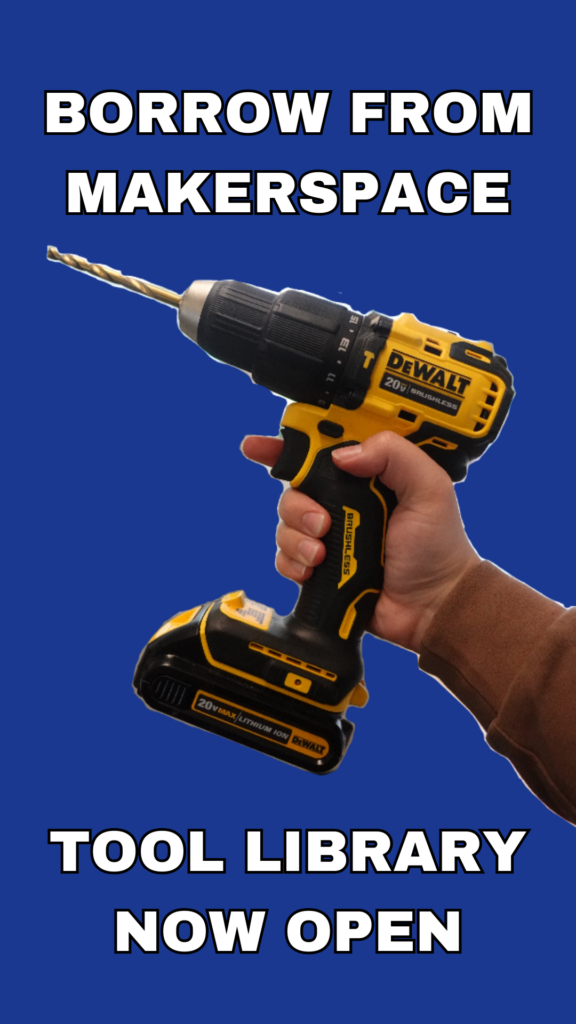
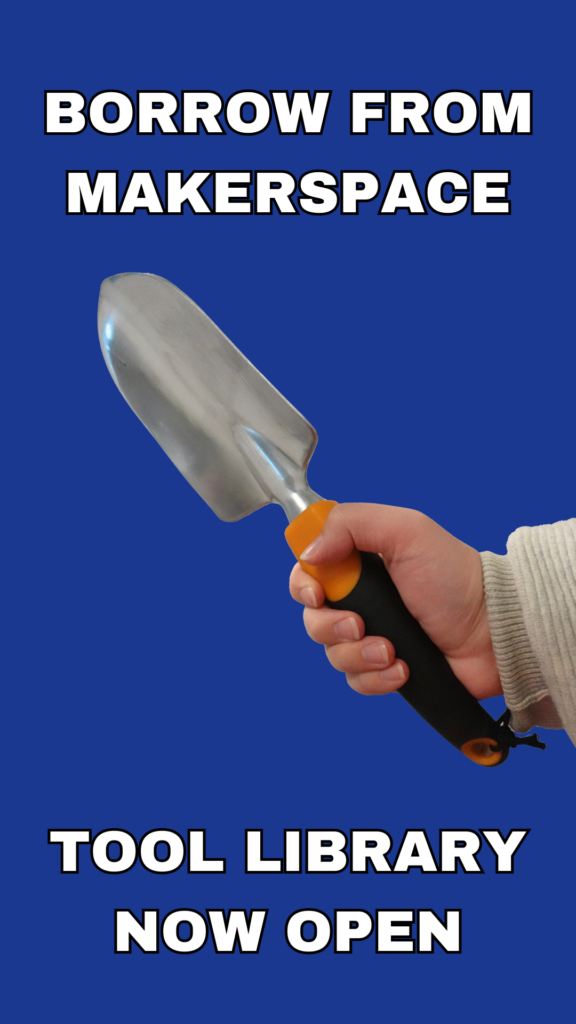

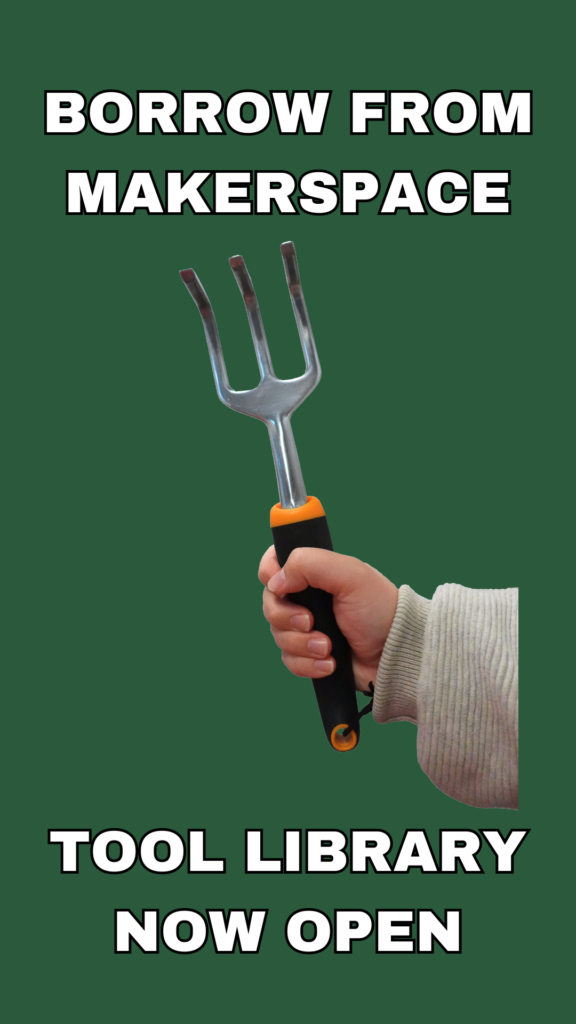
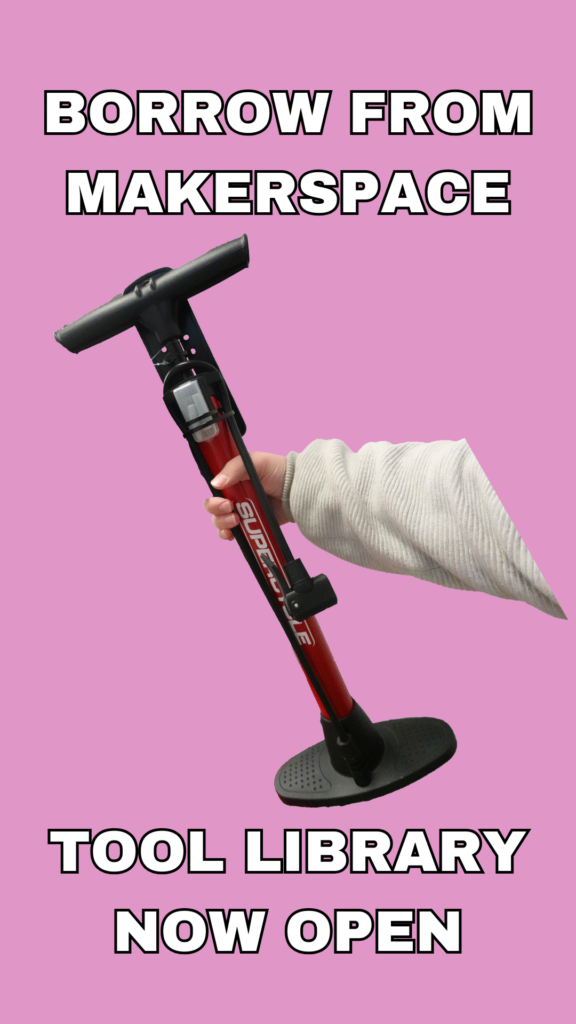

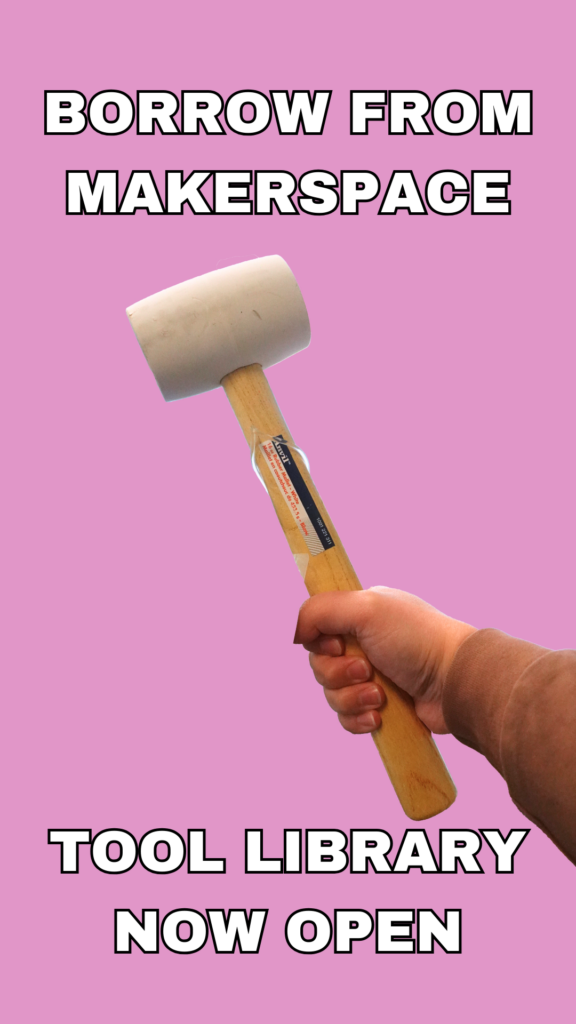
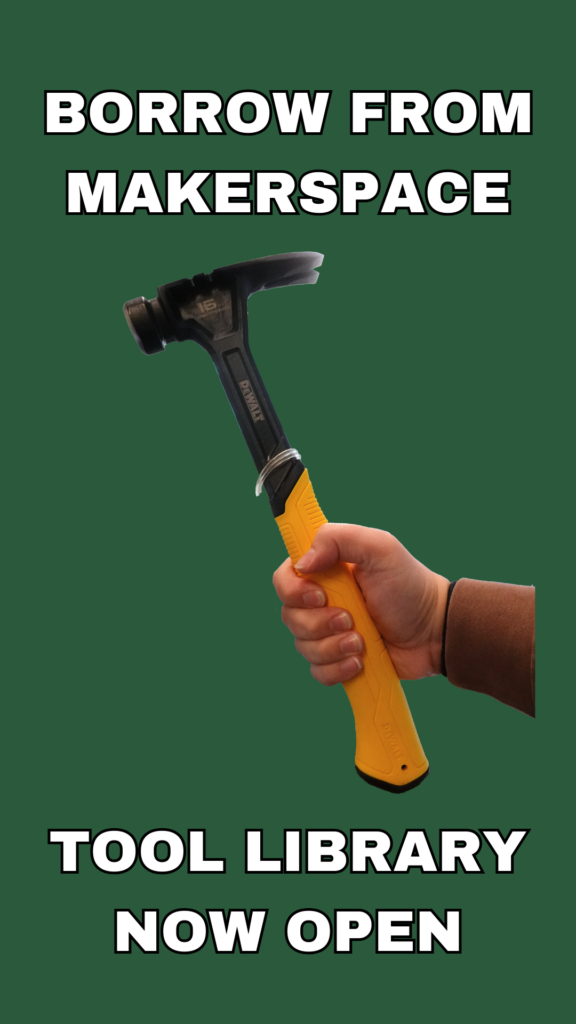
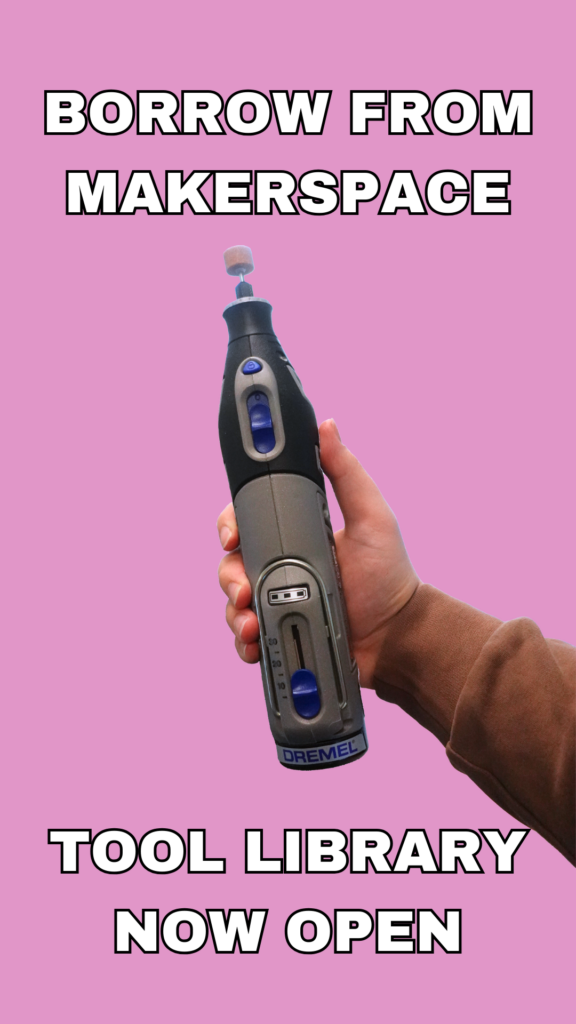
Goal 1: Develop a Tool Library of household, bike, garden, and crafting tools (COMPLETE)
The first goal is to establish a lending library of basic household, bicycle, and gardening tools. This will help foster a culture of repair and maintenance, decrease duplication of purchases, and enhance equitable access to tools for the campus community.
This goal is complete! We now have many different household, bike, and gardening tools available to check out. We still need to do some promotion and we will need to do an evaluation at some point, but it feels good to have this one done!
Outcomes:
- Conducted a survey of users and gathered ideas for tools using a white board and personal contacts with students and faculty
- Researched and purchased tools
- Prepared tools so they can be checked out by any TRU student, staff, or faculty member
- Developed a page on our website: Tool Library
Future Goals:
- Develop a better way to store tools
- Track usage, wear and tear, cost per use, etc.
- Promote use
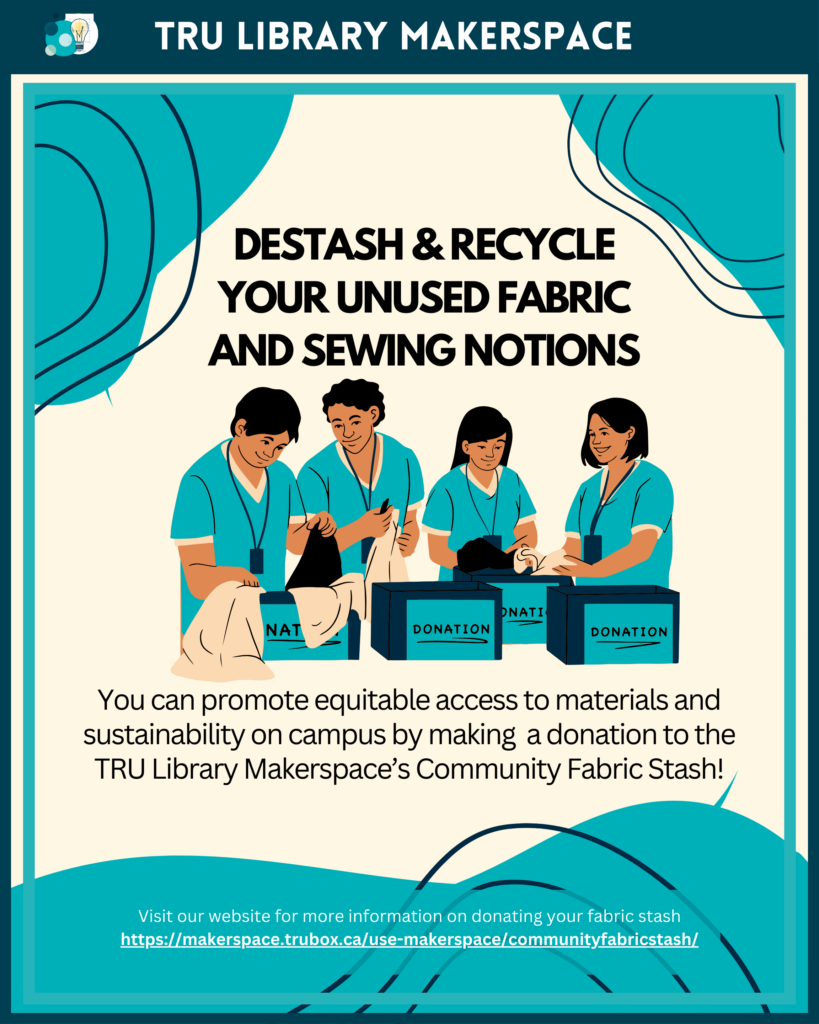
Goal 2: Develop a Community Fabric Stash of donated fabric and sewing materials for the TRU Community (in process)
The second goal is to create a fiber bank of donated textiles and other materials for the TRU community to access for completing assignments, prototyping designs, and creating/repairing clothing and other items. This will redirect items that are currently being wasted or underutilized and encourage re-use and repair of clothing and other textiles. The fiber bank also supports social sustainability by reducing barriers to accessing materials and increasing equity
This goal is still in process, but we have selected a room to use, drafted guidelines and promotional materials, and are figuring out how and where to get material donations.
Outcomes:
- Developed draft guidelines for donation and use
- Selected a room to use for storage
- Developed draft promotional materials
- Developed a draft website
- Reached out to local community businesses about helping with donations
Next Steps:
- Work with a trades student to have custom shelves built out of re-used materials
- Finalize guidelines
- Publish website
- Promote for donation and use
Future Goals:
- Track usage
- Promote use
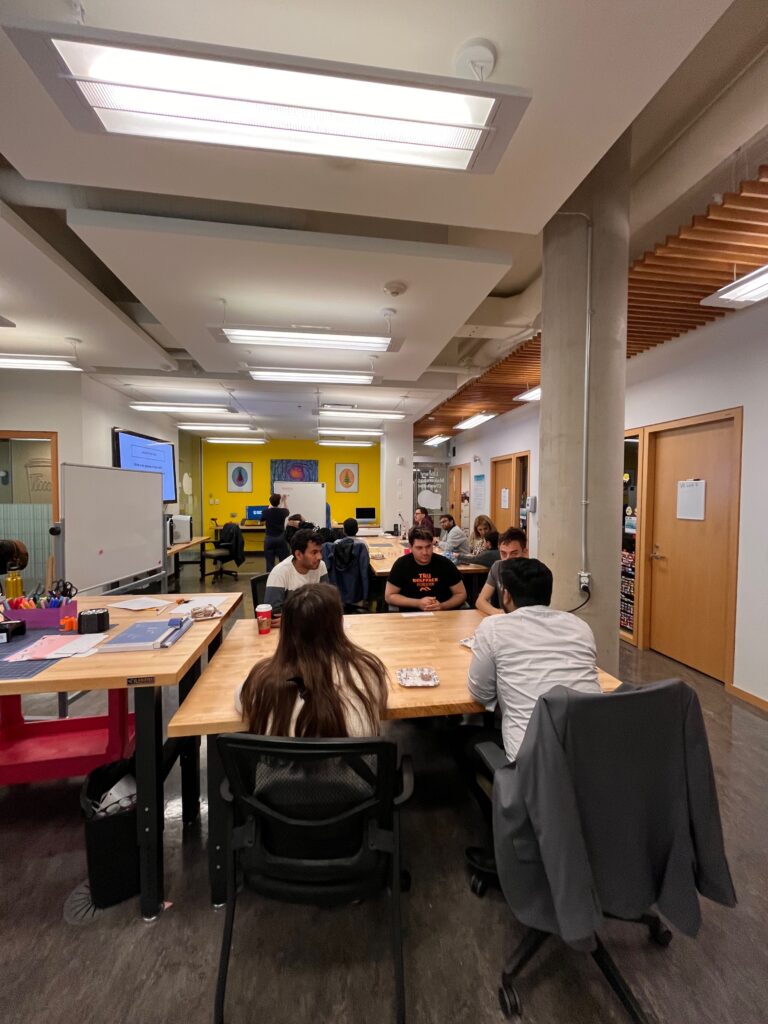
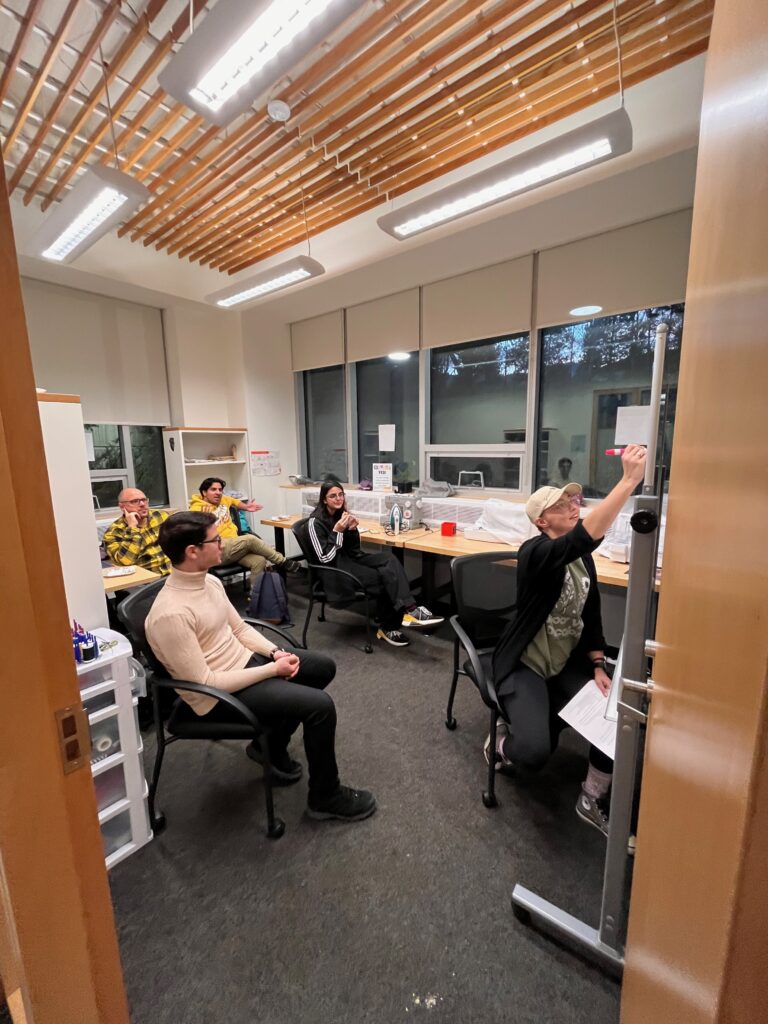
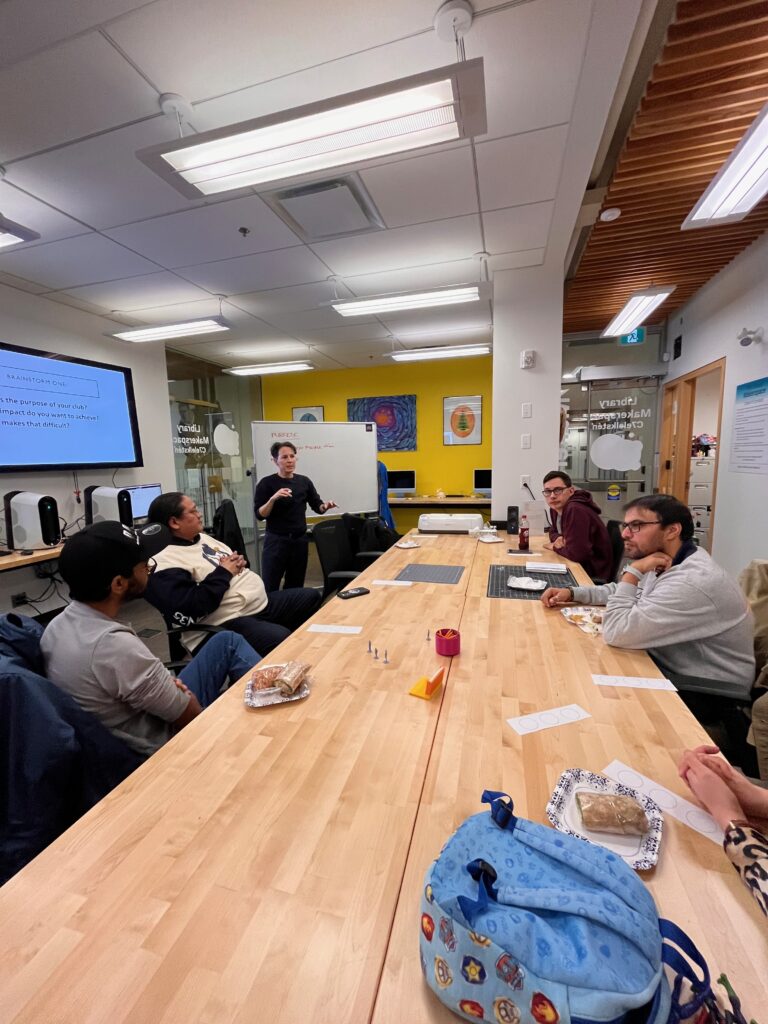
Goal 3: Make it easier for Campus Groups to run events in the Makerspace (in process)
“The third goal is to turn the Makerspace into a “Sustainability Incubator” that campus groups can utilize to pursue their economic, environmental, and social sustainability goals by providing infrastructure and resources and building relationships. This grant will facilitate this by funding 2 Student Makerspace Sustainability Champions who will work with the Makerspace Librarian and staff to develop relationships, pursue outreach activities, and create infrastructure and programming. The goal of this work will be to find ways to make it easier for campus groups to run sustainability programs and initiatives at the Makerspace. They will also assist with developing the Tool Library and Fiber Bank and help develop other resources such as educational materials and programming to encourage sustainability”
This was our most ambitious goal and is the one that will be ongoing after the grant. We now have guidelines for groups to host events in the space and a room that can be used outside of normal hours. We’ve met with stakeholders and have run events with TRUSU, the Sustainability Office, community groups, Indigenous Education, Cplul’kw’ten, and others. We’ve also developed a successful Coyote Grant to promote Indigenous artists and technologies.
The reality is that the work of community is never done, especially in a university where new students are always arriving.
Outcomes
- Developed guidelines for hosting student club events in the Makerspace.
- Set up a room that is accessible outside normal Makerspace hours for student clubs who want to use Makerspace technologies for events on evenings and weekends.
- Developed a website and booking system for organizing club events: Host an Event
- Organized an outreach and brainstorming event with TRUSU for TRUSU Club leaders to come together to talk about social and environmental sustainability programming and how we can work together.
- Ran a Repair Event led by students and in partnership with Kamloops Repair Café and the TRU Sustainability Office that was open to all community members.
- Hosted a lunch and brainstorming session with faculty and staff from Indigenous Education, FSD, and the Gathering Place to talk about Decolonizing the Makerspace.
- Developed a successful Coyote Grant (in collaboration with my Sustainability Champion Research Assistants and with guidance from Ted Gottfriedson) to help us better welcome Indigenous students and support Indigenous programming in Makerspace
- Purchased books related to sustainability for the Makerspace Book Collection
Next Steps:
- Develop promotional materials for TRUSU groups related to ecological and social sustainability
Future Goals:
- Work with campus and community groups to host 2 Repair Events each year. These events would be opportunities for student clubs to promote themselves and sign up new members, while also gaining mentorship from faculty and staff.

